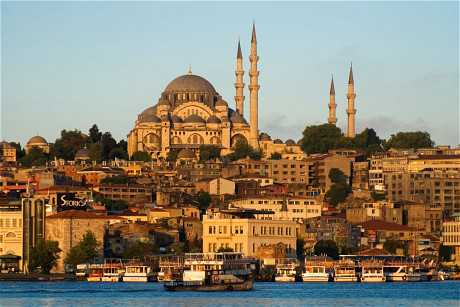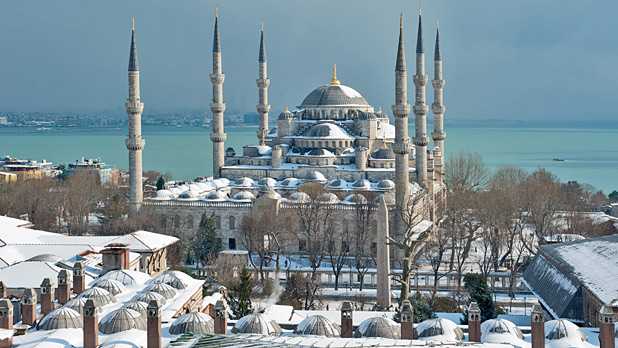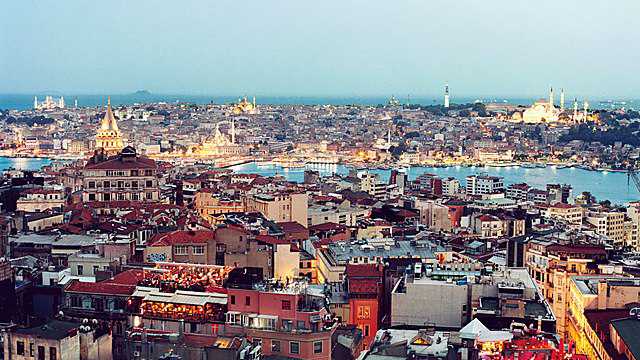By Gareth Jenkins
Thursday, July 31, 2008
In the run-up to the announcement of the verdict, a monetary fine—rather than closure or acquittal—had always appeared the most sensible, if least likely, outcome. The general expectation had been that, given the hard-line secularist composition of the Constitutional Court, the AKP would be closed. In fact, a majority of the 11 members of the court did vote to outlaw the AKP, with six voting for closure and only five for the party to remain open. However, under the Turkish Constitution, the closure of a political party needs the support of seven of the 11 members of the court.
Yalcinkaya had also called on the court to ban 71 current and former members of the AKP, including Prime Minister Tayyip Erdogan and President Abdullah Gul, from membership of a political party on the grounds that their activities formed the basis for his application for the AKP’s closure. These charges were automatically dropped when the court decided to allow the AKP to remain open.
There is little doubt that the closure of the AKP—particularly if it was accompanied by a ban on Erdogan—would have plunged the country even deeper into what was already the worst domestic political crisis in a generation, triggering early elections, increasing uncertainty and raising tensions in what is now a society dangerously divided over the role of religion in public life. As a result, the court ruling has come as an enormous relief. But it has not solved anything—merely bought Turkey some time.
Since the AKP was founded in August 2001, it has angrily dismissed suggestions that it is an Islamist party and claimed to be committed to the principle of secularism enshrined in the Turkish constitution. Perhaps the most striking aspect of the Constitutional Court’s decision of July 30 was that 10 of its 11 members upheld Yalcinkaya’s claim that the AKP had become a focus for anti-secular activities, as exemplified by its attempt on February 9 to amend the constitution to lift the headscarf ban in Turkish universities (see EDM, February 11), only for the amendments to be annulled by the Constitutional Court on June 5 (see EDM, June 6). The difference between the 10 judges was not whether or not the AKP was attempting to erode secularism but whether its attempts were serious enough to merit the complete closure of the party. Six members of the court believed that they were. Four decided that a monetary fine was sufficient punishment. Only the court’s president, Hasan Kilic (born 1950), a conservative first appointed to the court by former President Turgut Ozal (1927-1993) in 1990, voted to dismiss Yalcinkaya’s application.
In announcing the court’s ruling, a clearly shaken Kilic admitted that, even though the AKP had been allowed to remain open, the verdict constituted a “severe warning” to the party (CNNTurk, NTV, HaberTurk, July 30). In theory at least, the decision not to close the party for its past actions should serve as a restraint on the AKP’s future policies. Under Turkish law, members of the Constitutional Court are appointed by the president. President Gul is not due for reelection until 2012, and, as a former member of the AKP, can be expected to try to appoint conservative judges to the court. But none of the current members are due to step down until 2010, when three will reach the compulsory retirement age of 65. No other member of the court is due to retire until 2013. As a result, barring death or disability, at least seven of the 10 judges who ruled that the AKP had attempted to erode secularism will remain members of the court for the next five years—well after the deadline of July 2011 for the next general election. As a result, barring a change in the constitution, for the remainder of the government’s term, the judges who voted to uphold Yalcinkaya’s application will remain numerous enough to close down the AKP if they believe that it has not heeded the warning in the verdict of July 30.
Logically, the confrontation between the AKP and secularists over the role of Islam in public life should thus shift away from high profile iconic issues such as lifting the headscarf ban to lower level skirmishes on the margins of the political arena, such as political appointments. For example, in early August the rectors at 21 Turkish universities—approximately one-fifth of all the universities in Turkey—are due to step down and be replaced by candidates chosen by President Gul, who is generally expected to try to tighten the AKP’s grip on the education system by appointing conservatives.
However, given Erdogan’s past record of reckless and often impulsive behavior—such as in his abrupt attempt to amend the constitution in February—it would be naïve to assume that, after a few months have passed, he will not attempt once again to challenge Turkey’s secular establishment and perhaps try to resurrect his plans to promulgate an entirely new constitution (see EDM, November 27, 2007).
Perhaps most importantly, the Constitutional Court ruling of July 30 has provided only a temporary respite, not a solution to the question of the role of Islam in public life. In theory, it offers a breathing space and an opportunity for the two sides to reach a compromise. Unfortunately, there is still no indication that it is an opportunity that either side is anxious to take.
Ironically, though many will have been disappointed by the court’s decision not to close the AKP, the verdict also offers secularists what may be their last chance to create a credible alternative to the current government. If the AKP had been closed and early elections held in late fall this year, there would have been too little time either to replace the jaded, discredited leaders of the secularist opposition or to establish an entirely new party. The constitutional court’s verdict has thus also given secularists an opportunity to prepare to mount an effective challenge to the AKP at the next election. But it remains to be seen whether it is an opportunity that will be taken.






